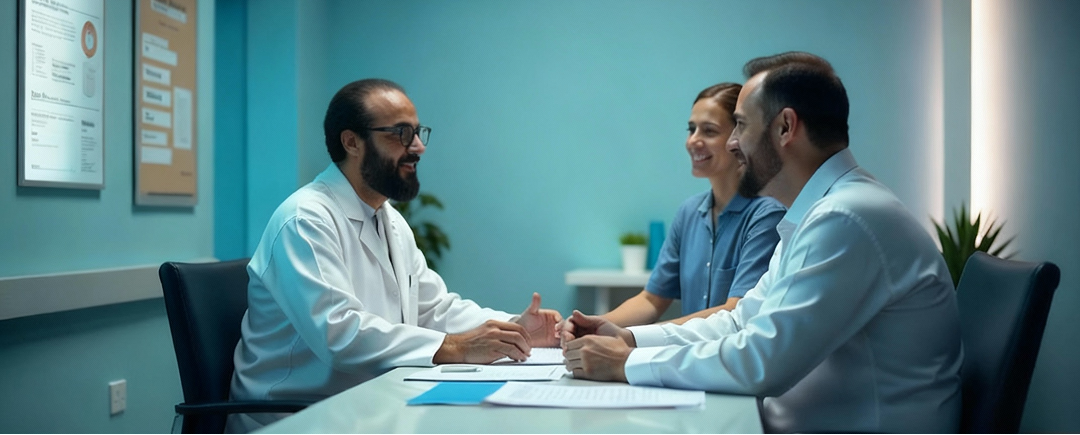
Advanced Hernia Center
Comprehensive Hernia Repair — From Routine to Complex Indications.
Inguinal, ventral, incisional, hiatal and reflux surgeries—performed with robotic‑assisted precision and minimally invasive techniques for optimal recovery.
At our Hernia Center, we offer full-spectrum hernia care—from standard inguinal or ventral repairs to intricate incisional and hiatal hernias. With advanced robotic and laparoscopic platforms, we deliver tension-free, durable mesh repairs and fundoplication surgeries, while prioritizing patient comfort and early return to daily life.
7
Fellowship-trained hernia specialists with expertise in complex ventral and hiatal hernia repair>60%
robotic-assisted surgery for superior visualization and precisionUse of lightweight and composite meshes to optimize long-term strength and avoid complications
Minimally invasive approach enabling shorter hospital stays and quicker recovery
Common Conditions & Subspecialty Clinics.
- Inguinal (groin), umbilical, epigastric, femoral hernias
- Small ventral hernias
- Incisional and recurrent ventral hernias
- Large abdominal wall defects requiring abdominal wall reconstruction and component separation
- Hiatal and paraesophageal hernias with or without reflux
- Fundoplication (Nissen, Toupet, Dor) in conjunction with hiatal repair
Procedures & Treatments.
Laparoscopic TAPP, TEP, eTEP, and TAR techniques are applied for inguinal, ventral, and incisional hernias
Robotic platforms (e.g., da Vinci system) enable high-definition 3D visualization, improved instrument articulation, and precise dissection in complex and recurrent hernias
Hiatal hernia repairs combined with Nissen, Toupet or Dor fundoplication for reflux control
Use of lightweight, composite synthetic mesh for tension-free repair and reduced recurrence risk
Component separation (e.g. TAR) techniques, including robotic approaches, for large, complex abdominal wall hernias
Care Pathway & Coordination.
Initial Consultation
Evaluation by hernia specialist and imaging review
Personalized Surgical Plan
Based on hernia type, size, anatomy, and patient factors
Definitive Repair
Robotic or laparoscopic mesh-based repair or fundoplication as indicated
Post-op Recovery
Early ambulation, tailored pain control, and discharge pathway
Rehabilitation & Follow-up
Guidance through core-strengthening and recurrence prevention protocols
Technology & Facilities.
State-of-the-art robotic surgical suites with da Vinci systems for enhanced precision
Laparoscopic towers with high-definition imaging and specialized mesh fixation tools
Advanced composite mesh materials selected for each case to minimize recurrence
Integrated surgical planning with cross-disciplinary input (nutrition, rehab, radiology)